
Magento vs Netsuite SuiteCommerce: Which is the Best E-commerce Business?
Are you wondering which platform is the best fit for your business needs? Magento vs Netsuite is an essential choice for businesses improving their ecommerce operations. Choosing the right e-commerce is important for your business's success.
This article will compare Magento vs Netsuite to help you decide.
Key Takeaways
-
What are the aspects of Magento and Netsuite ecommerce?
-
See which platform is better for businesses of all sizes, from startups to big companies.
-
A detailed comparison of Magento and the Net suite highlights the differences.
-
Different B2B capabilities of both platforms for the business.
-
Compare costs to find out which platform gives better value.
-
See the pros and cons of each platform.
-
Find out which platform offers better insights for your business and advanced features.
What is Magento?
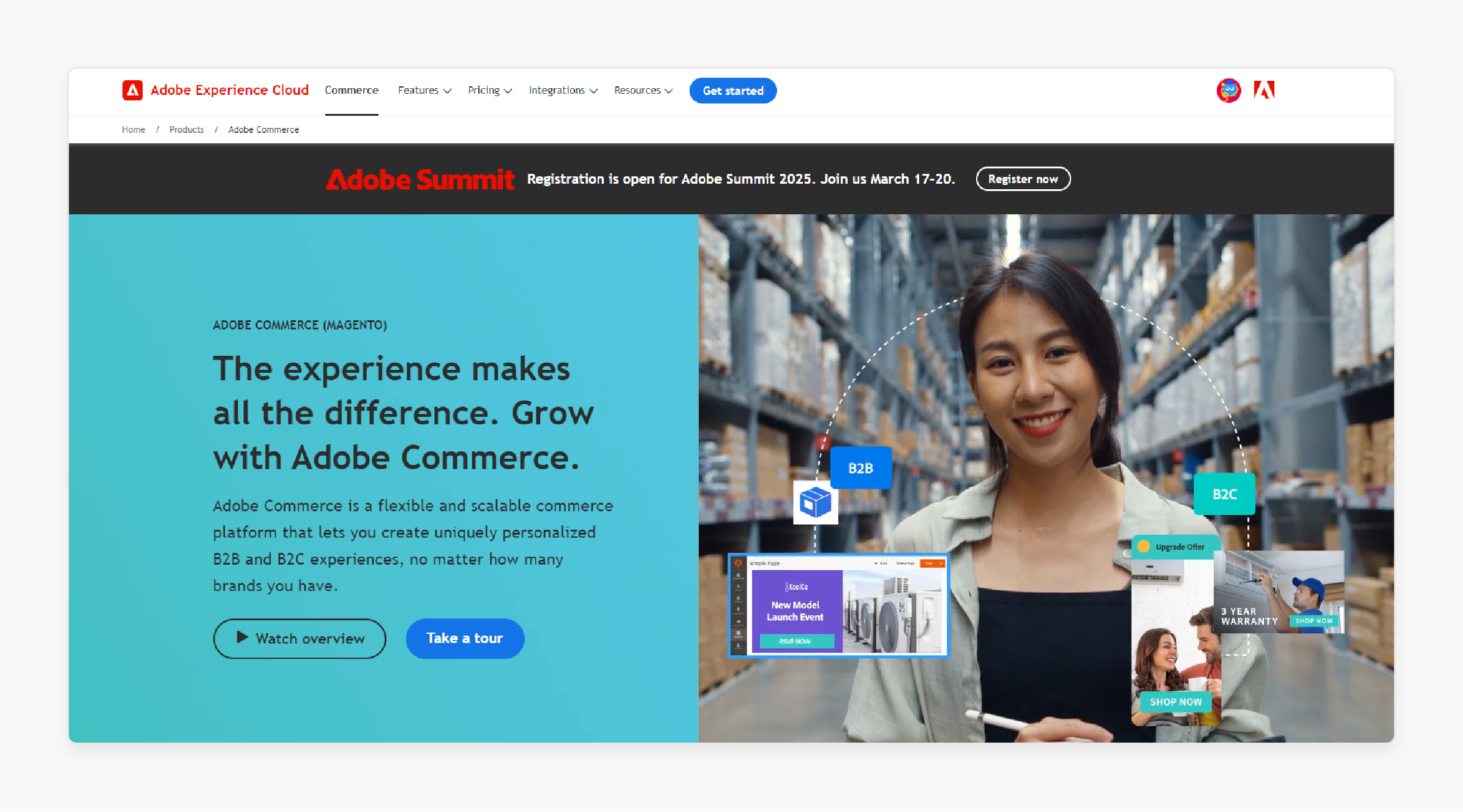
Magento is a powerful open-source platform. It helps businesses build and manage web stores. Commerce system is known for its customization and scalability.
Magento was released in 2008. It was acquired by Adobe Inc. in 2018. Magento offers better performance, security, and ease of use. Compared to NetSuite, the Open-source platform is more feature-rich. It is popular with both small businesses and large enterprises.
Magento excels in configuration, with many Magento themes and extensions that enhance functionality. Magento provides a strong community and offers free support via forums and documentation.
What is NetSuite Commerce?
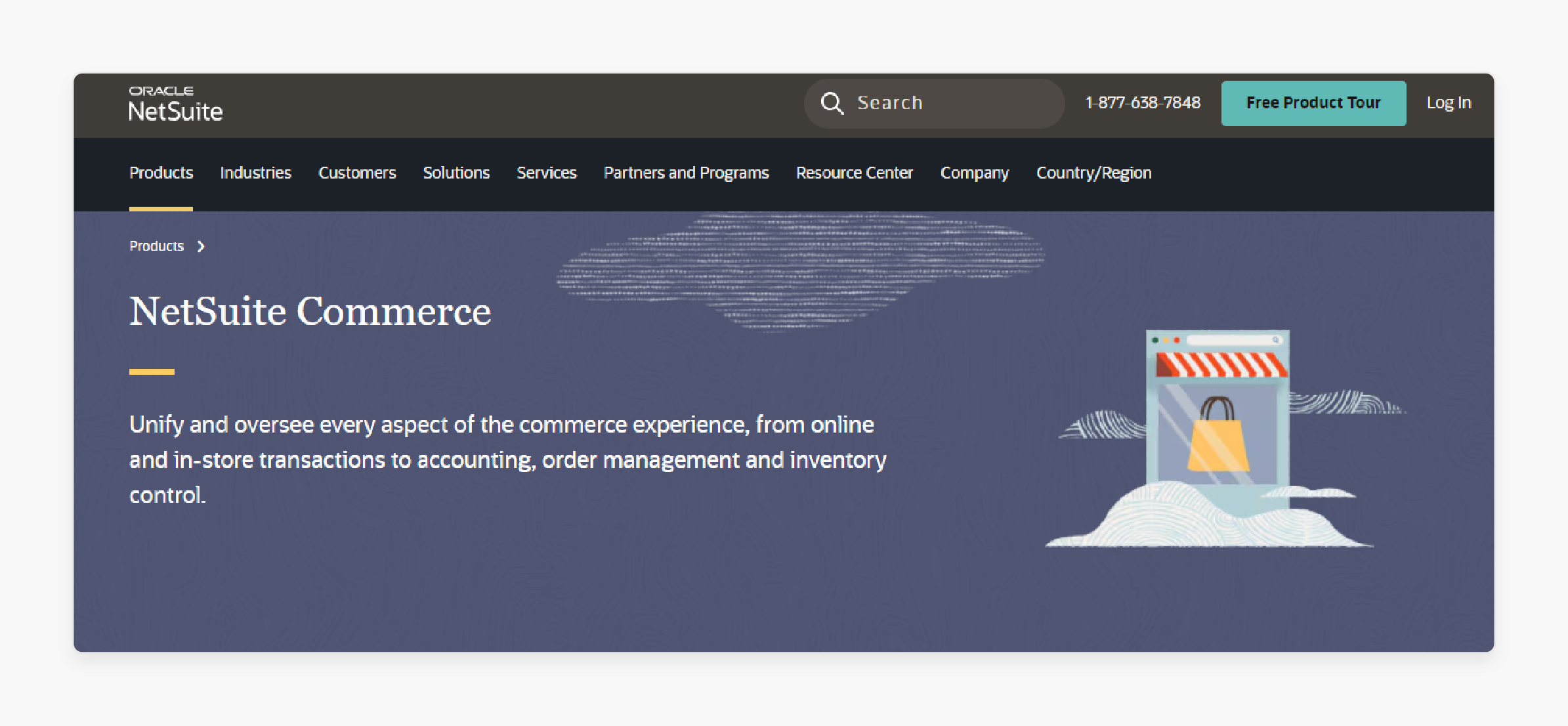
NetSuite Commerce is a cloud-based solution that easily integrates with Netsuite ERP. It helps businesses manage their eCommerce platform and back-end tasks.
NetSuite Commerce was founded in 1998. It supports both B2B and B2C. Net Suite is ideal for online businesses of all sizes, from small startups to large companies. It offers flexibility for specific business needs and business expansion. With real-time data and smooth integration capabilities, SuiteCommerce Advanced delivers a smooth:
-
Easy order fulfillment
-
Better user experiences.
Market Position: Who Chooses Magento vs Suitecommerce?
1. Magento Marketplace Position
-
Market Share: The Magento platform holds 2.34% of the global e-commerce solution market.
-
Usage: Over 677,539 websites use Magento’s platform. Out of these, there are 145 million active sites and 371,860 redirecting domains.
-
Geographical Distribution: The U.S. leads online retail usage of online store platforms. Many businesses depend on their shopping cart features.
-
Industry Adoption: Magento customers include many small businesses. There are 20,055 users in the 0-9 employee range and 16,579 in the 20-49 segment. They use the extensive customization options.
-
Version Distribution: Around 41% of users are on Magento, while 59% still use Magento 1. Both run on PHP.
2. NetSuite Market Position
-
Recognition: NetSuite is a leader in IDC MarketScape for SaaS and Enterprise Resource Planning (ERP).
-
User Base: It serves over 37,000 customers in 219 countries. It uses its comprehensive suite of tools.
-
Industry Specialization: SuiteCommerce helps both product-based and service-based businesses. It allows for seamless integration with CRM and warehouse management systems.
-
Integrated Solution: It provides a platform that includes:
-
Financials
-
HR
-
Omnichannel commerce offers a unified system for business operations.
-
Choosing Between Magento and NetSuite
-
Business Needs: The commerce system suits businesses that need extensive options. It has control of its e-commerce solution. Magento may need more troubleshooting and updates.
-
Scalability and Integration: SuiteCommerce fits businesses needing a flexible platform. With a comprehensive suite of features, Netsuite reduces the need for third-party tools.
-
Cost Considerations: NetSuite delivers bundled pricing in its software suite. Open source allows more flexibility in managing the overall cost of ownership.
Magento and Netsuite: Detailed Comparison
| Category | Magento Platform | NetSuite Advanced |
|---|---|---|
| Platform Type | Open-source eCommerce solution with flexibility and many configuration options. Ideal for businesses wanting full control. | Cloud-based solution developed by NetSuite with built-in business management and CRM. |
| Industry Specialization | Highly customizable for industries like fashion, electronics, and more. Perfect for businesses with specific needs. | Suits industries like manufacturing, wholesale, and retail with standard features. |
| Target Audience | Best for medium to large businesses. A flexible eCommerce solution is needed to meet unique business needs. | Ideal for B2B and B2C companies. It needs all-in-one business management software for seamless operations. |
| Customization | Offers extensive configuration options through third-party tools, allowing businesses unique store designs. | Limited customization, but SuiteCommerce delivers a smooth, ready-to-use experience. |
| Total Cost of Ownership (TCO) | Lower upfront costs with control over expenses. You pay only for the features you need. Ongoing maintenance may add cost. | Higher upfront costs include everything but less control over costs. |
| Omnichannel and POS | Requires third-party integrations for POS and omnichannel. It enables businesses to choose the best tools. | Built-in omnichannel and POS capabilities. It is easier to use but less flexible than Magento. |
| Scalability | Highly scalable through plugins and add-ons. Perfect for businesses that want to grow and adapt over time. | Scalable with built-in features, but it limits flexibility. |
| Order Management | Needs third-party extensions for order tracking status. It lets businesses select tools that fit their needs best. | Fully integrated order tracking management. It has limited configuration and may not suit all business models. |
| Integration Capabilities | Supports third-party integration for payment gateways and more. You can choose the best tools for your business. | NetSuite Suitecommerce offers seamless integration with finances. It has limited outside tools. |
| Customer Experience | Allows customized customer experiences through themes and plugins. Full control over how customers interact with the store. | Provides a unified user experience across channels but with fewer configuration options. |
| Cost Structure | Modular pricing lets businesses control the total cost of ownership. It pays only for needed features. | Bundled pricing includes everything. It may be more expensive if all features are not needed. |
| Analytics and Reporting | Requires third-party tools for advanced analytics, offering flexibility in reporting solutions. | Built-in analytics and reporting with real-time data but less flexibility for advanced reporting. |
| Ease of Use | It requires more technical knowledge for setup and management. But gives businesses full control. | Easier for non-technical users, with a unified system and ready-to-use features. Less control over configuration. |
| Version Management | Manual updates enable businesses to control when updates happen, avoiding disruptions. | Automatic updates, though they may not always suit business needs. Older features could become outdated. |
| SEO and Marketing | Strong SEO and marketing tools with built-in optimization features. It improves search rankings and growth. | Basic SEO tools, but strong in customer service for marketing. Less SEO flexibility. |
| Support Channels | Community-based support with premium options available for company users. Flexible for different budgets. | Dedicated customer support from NetSuite partners but fewer community-driven resources. |
| Support and Maintenance | It requires more troubleshooting and manual updates. Gives complete control over the platform. | SuiteCommerce delivers automatic updates that are reverse compatible, with strong support. |
B2B Capabilities: Suitecommerce Advanced compared to Magento
1. Magento B2B Capabilities
- Advanced Quoting Features: In Magento, advanced quoting is a key B2B feature. It helps businesses send, revise, and finalize quotes smoothly. The process is automated, which makes the retail platform efficient. It provides a seamless experience without deprecating features or code.
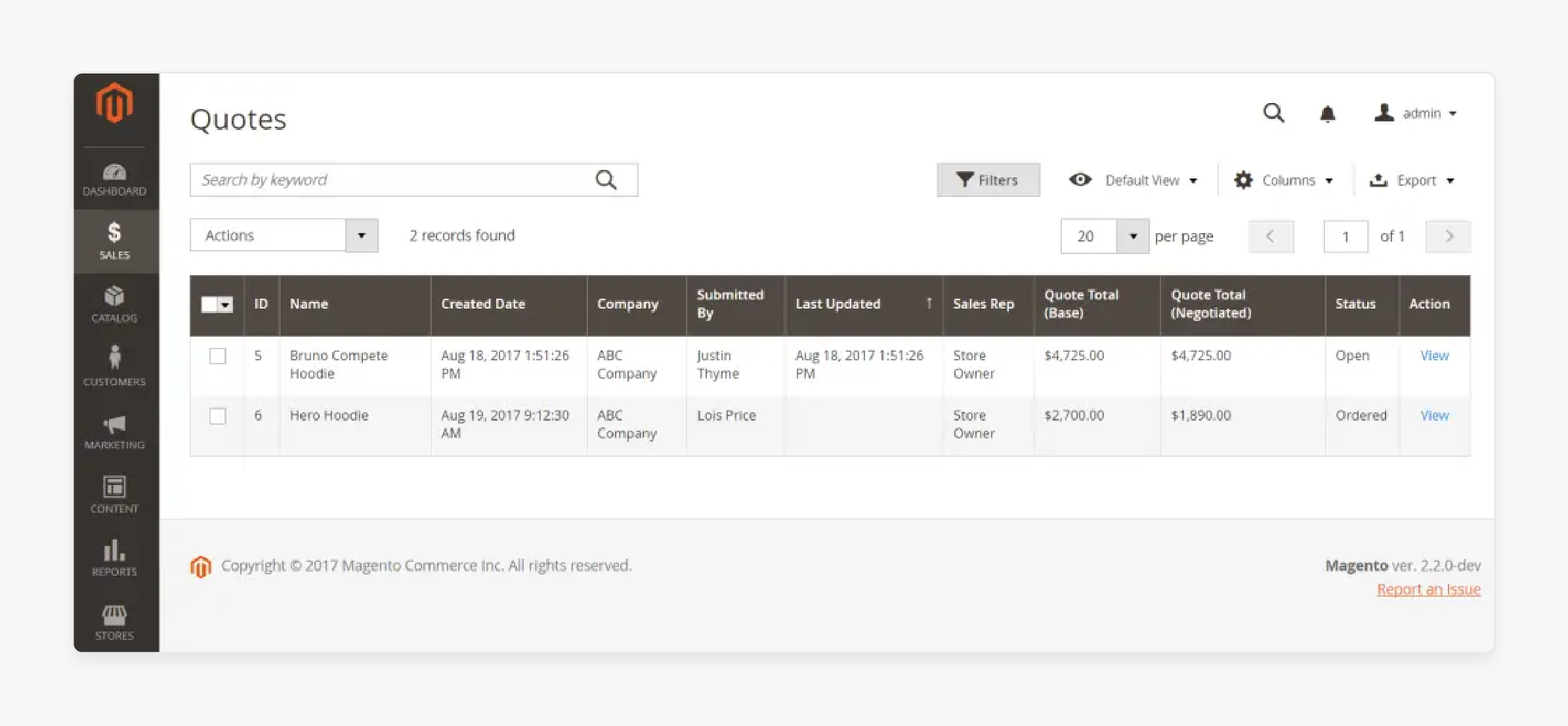
- Company Account: B2B customers can create and manage company accounts in Magento. It makes managing business systems like customer relationship management easier for larger teams. These accounts allow multiple users within the same company to access:
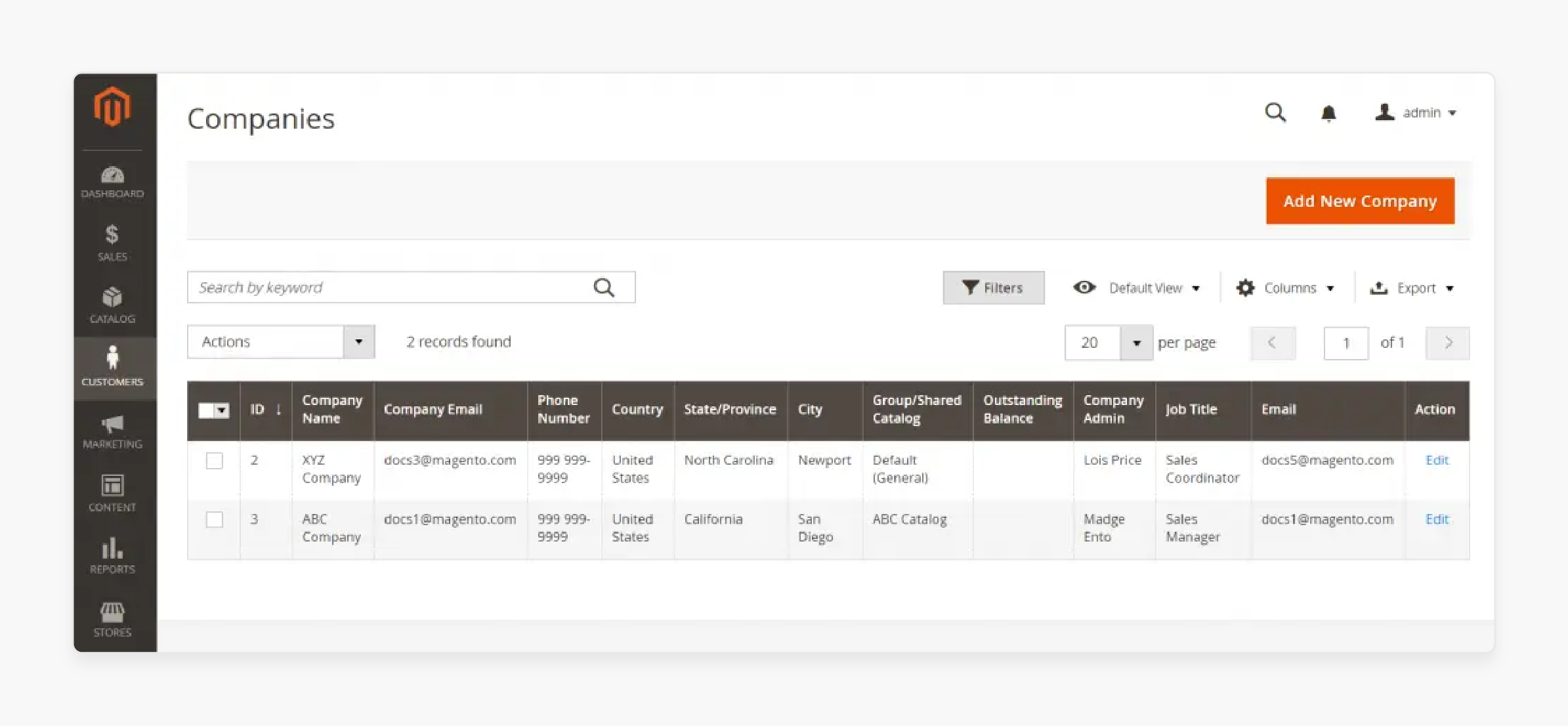
-
Custom catalogs
-
Pricing
- Quick Order: B2B buyers often place bulk or repeat orders. Magento simplifies the process with quick order forms and requisition lists. The features combine, helping buyers place large orders faster and with less effort.
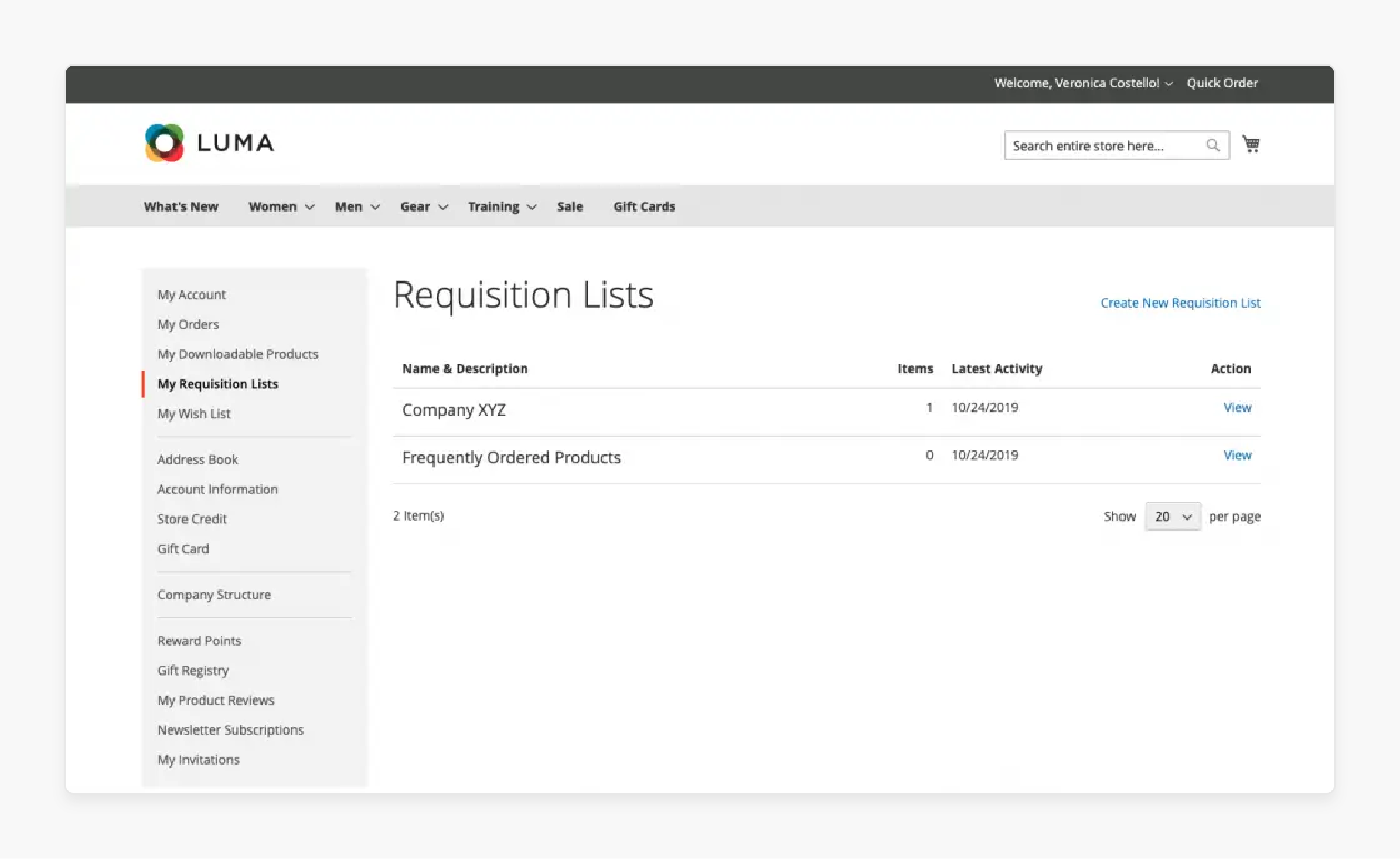
- Customized Catalogs and Price Lists: Magento stands out by offering customized catalogs. Businesses can create specific catalogs for different customer groups. It provides tiered pricing for B2B clients.
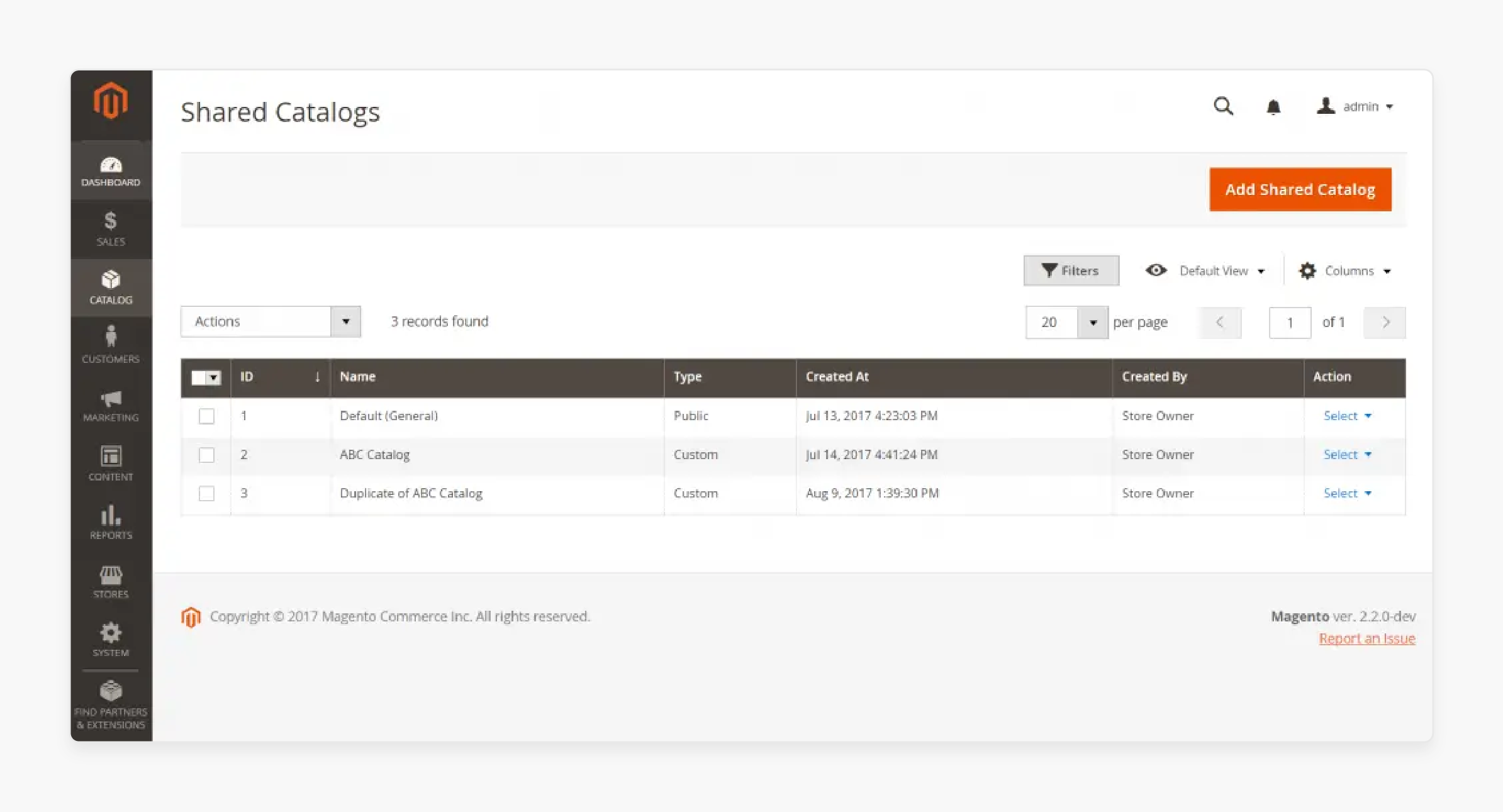
-
Inventory Management: Open source delivers strong inventory management tools. It offers real-time stock tracking and automated reordering. Magento creates a single source of truth for inventory levels. It helps businesses set up replenishment rules and avoid stockouts.
-
Flexible Payment Options: Magento delivers flexible payment methods, including:
-
Credit cards
-
Online gateways
-
Purchase orders
-
Invoicing
-
The options seamlessly integrate into the Magento platform. They also ensure smooth and flexible payment solutions for B2B clients.
2. SuiteCommerce Advanced B2B Capabilities
-
Native B2B Features: NetSuite’s SuiteCommerce includes key B2B tools. Businesses can manage customer pricing, create quotes, and offer flexible payment terms. It includes tools like quoting, account-based pricing, and invoice payments. NetSuite makes the B2B buying process smoother.
-
Unify Platform: The unified platform for your business combines NetSuite with software systems. SuiteCommerce is powered by NetSuite. It helps businesses manage all B2B processes in one place. SuiteCommerce cuts down on manual work and reduces complexity.
-
Purchasing and Billing: NetSuite delivers an easy way to handle bulk purchases. It automates invoice creation from online orders and supports approval workflows. SuiteCommerce saves time and makes transactions smoother for B2B customers.
-
Account Management: B2B clients can manage their accounts with the NetSuite. They can:
-
Check balances
-
View deposits
-
Manage credit memos
-
Handle returns by themselves, reducing support needs and improving the user experience.
-
-
Omnichannel Capabilities: Supports both B2B and B2C operations of NetSuite like Magento. NetSuite products connect front and back-end systems. It ensures smooth operations and reduces the need for manual updates as the business grows.
NetSuite Advanced vs Magento: Pricing Comparison
1. Magento
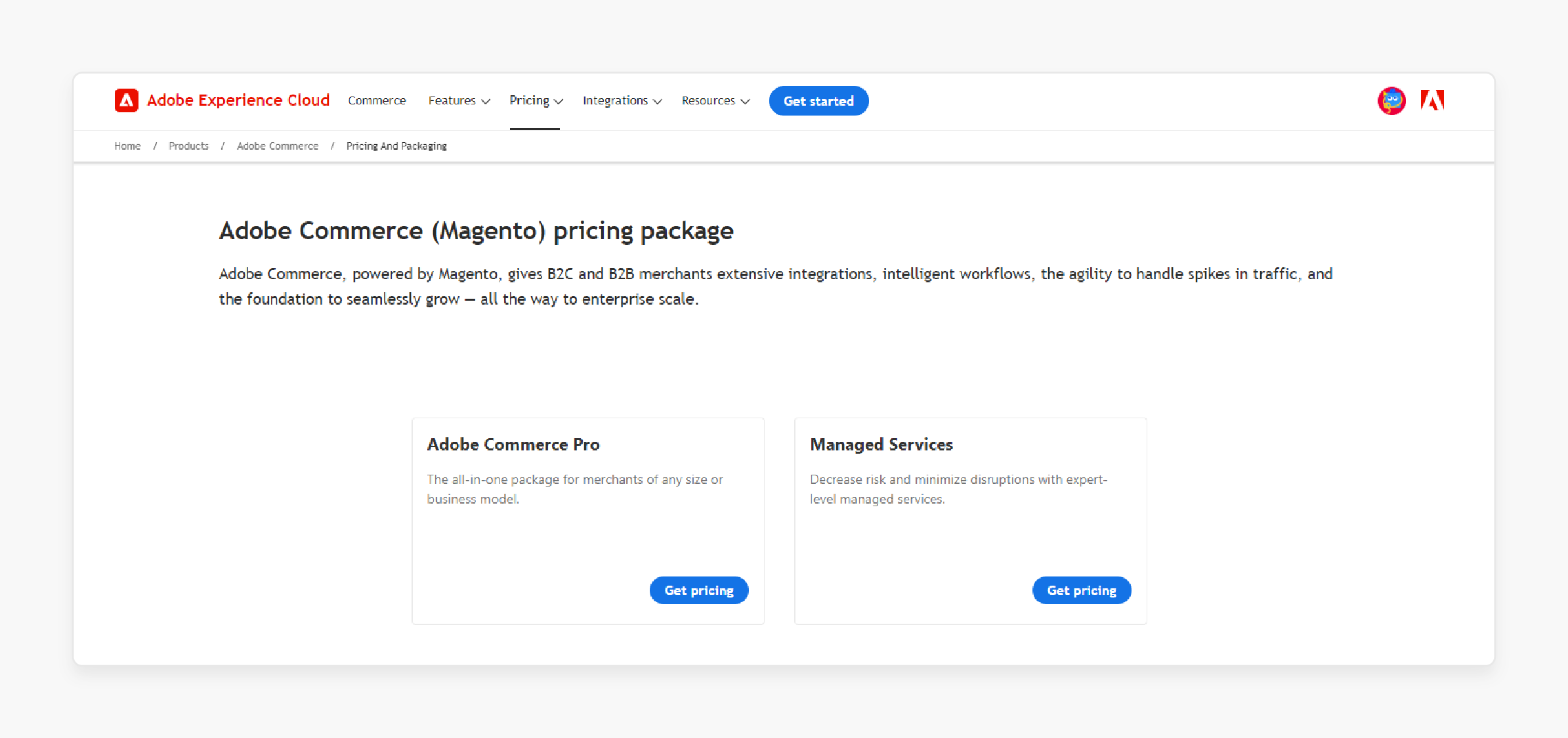
-
Magento Open Source: Free
-
Magento Commerce: $24,000+/year
-
Magento Commerce Cloud: $32,000+/year.
2. NetSuite
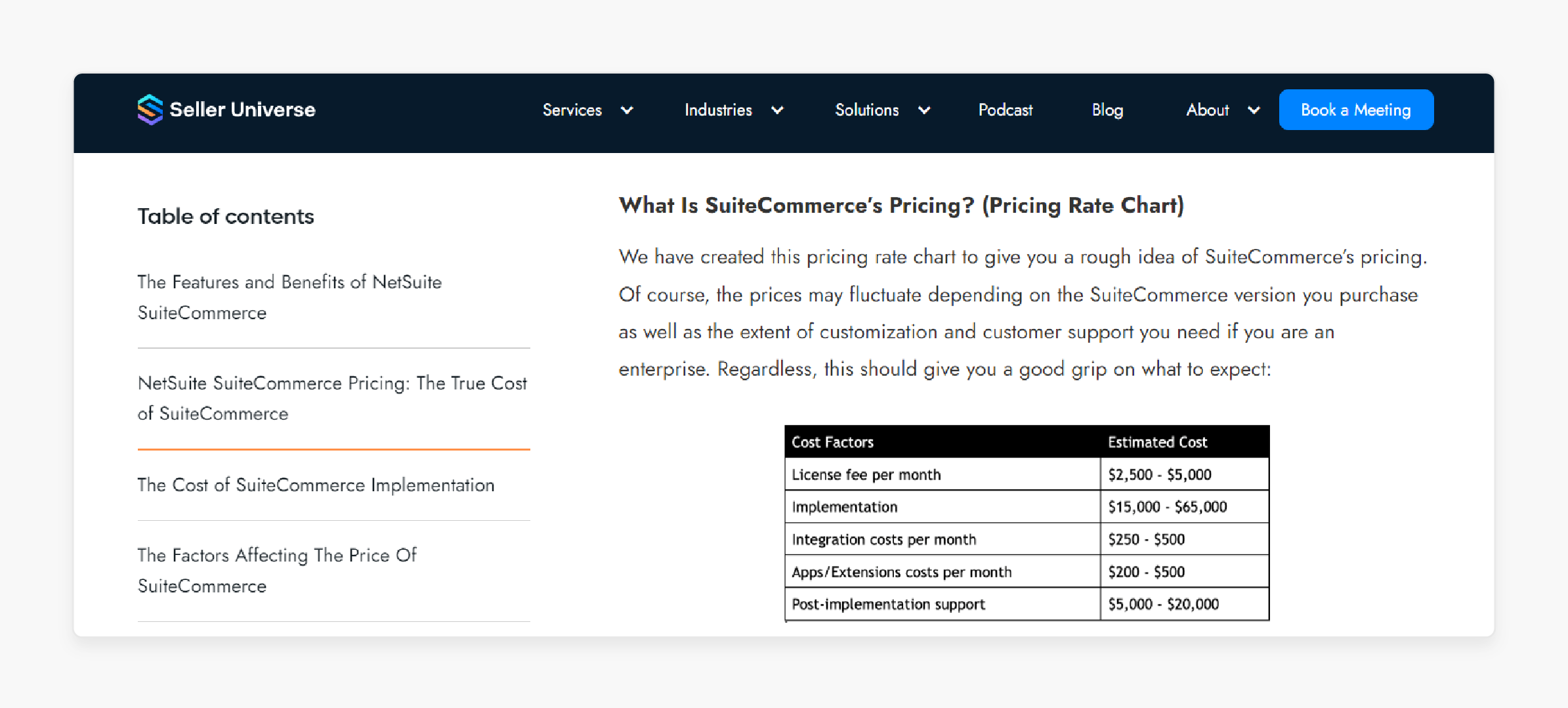
NetSuite plansoffers:
-
SuiteCommerce Standard: $2,499 per month
-
SuiteCommerce Advanced: $4,999 per month.
When you compare Magento vs SuiteCommerce, their pricing flexibility differs. Magento uses a modular pricing model. It supports businesses to pay only for needed features. It works well for small to medium businesses. SuiteCommerce has higher upfront and ongoing costs. It is due to the combined features of NetSuite.
Pros and Cons of Netsuite Suitecommerce vs Magento
1. NetSuite SuiteCommerce
-
Pros:
-
Integrated Platform: SuiteCommerce combines e-commerce and POS in one place.
-
Scalability: Scales with growth but is more rigid. Open source provides more flexibility for businesses as they expand.
-
Omnichannel Capabilities: Supports B2B and B2C on one platform.
-
-
Cons:
-
Higher Cost: SuiteCommerce is more expensive with a high setup.
-
Limited Adaptation: NetSuite provides fewer configuration options than Magento.
-
Complex Implementation: Setting up SuiteCommerce can be complicated. It may require professional help and does not have a large support community.
-
Vendor Lock-In: Businesses using it may find it difficult to switch platforms. It is combined and does not allow more freedom and flexibility.
-
2. Magento
-
Pros:
-
Magento 2 is highly flexible and customizable, perfect for complex needs.
-
Handles large product catalogs management and high sales volumes. It is ideal for big open-source stores.
-
Magento offers many built-in e-commerce features.
-
Strong SEO capabilities with advanced options available in Magento.
-
Scalable for large businesses like Magento enterprise.
-
Supported by an active open-source community and a large marketplace.
-
-
Cons:
-
Requires Technical Expertise: Magento needs some technical skills. However, with training and support, your team can effectively use its features.
-
High Development and Maintenance Costs: Development and upkeep can be expensive. But it reflects the retail platform's strong capabilities. Professional help can manage these costs.
-
Needs Enhanced Hosting: Magento needs powerful hosting, which can be costly. It ensures better performance and reliability, making the investment worth it.
-
Netsuite vs Magento: Choosing the Right E-commerce Platform
1. Magento
Best For:
-
Large Businesses: Great for businesses with large product catalogs and high sales. It is built to scale and handle complex needs.
-
Configuration: Magento provides unmatched flexibility. You can customize almost every aspect of your store.
-
Advanced Features: Open-source, in terms of built-in features, is strong. It is perfect for businesses needing advanced functionality out of the box.
2. SuiteCommerce
Best For:
-
Growing Businesses: SuiteCommerce is ideal for businesses planning to scale. It combines e-commerce and inventory management into one system.
-
User-Friendly Setup: It works well for companies that want less technical setup. Its built-in tools reduce the need for constant technical help.
FAQs
1. What is the difference between Magento Open Source and NetSuite SuiteCommerce Advanced?
Open Source gives flexibility with extensions and configuration. SuiteCommerce Advanced is an all-in-one ERP system with built-in features. SuiteCommerce provides a unified user experience. Open source allows more control for personalization.
2. How does scalability compare between Magento and SuiteCommerce?
Open source scales with various extensions to match your business needs. SuiteCommerce has built-in flexibility that supports company growth. It also supports the integration as your business grows.
3. How does customer support differ between ecommerce platforms?
Ecommerce websites rely on community-driven customer support with premium options. NetSuite provides direct customer service from NetSuite providers. It helps with smooth NetSuite implementation and ongoing support.
4. Can SuiteCommerce Advanced and Magento 2 handle global operations?
Both platforms support global operations. NetSuite provides built-in tools for multi-currency and multi-language needs, with backward compatible updates. Magento achieves this with extensions that offer similar features.
5. How do Magento and SuiteCommerce ensure business growth with updates?
Magento updates through the community and extensions, which are customizable. NetSuite suitecommerce provides automatic updates. It is reverse compatible, ensuring smooth operations as your business grows.
6. What is the NetSuite implementation process compared to Magento?
The NetSuite SuiteCommerce implementation process is structured with support from NetSuite partners. It has built-in ERP and integration features. Magento is more flexible but needs developers and extensions for custom setups.
Summary
Magento vs. Netsuite are the ecommerce options for your eCommerce business. Magento excels in customization for large businesses. It has a flexible architecture and advanced product management capabilities. Netsuite offers a platform that scales with your business as it grows.
Consider the following while selecting the best ecommerce for your business:
-
Choose Netsuite if you need an adaptable platform where updates are backward compatible.
-
Choose Magento if you run a large business needing extensive configuration and scalability.
Explore Magento Hosting Plans to find the best fit for your e-commerce business needs.






